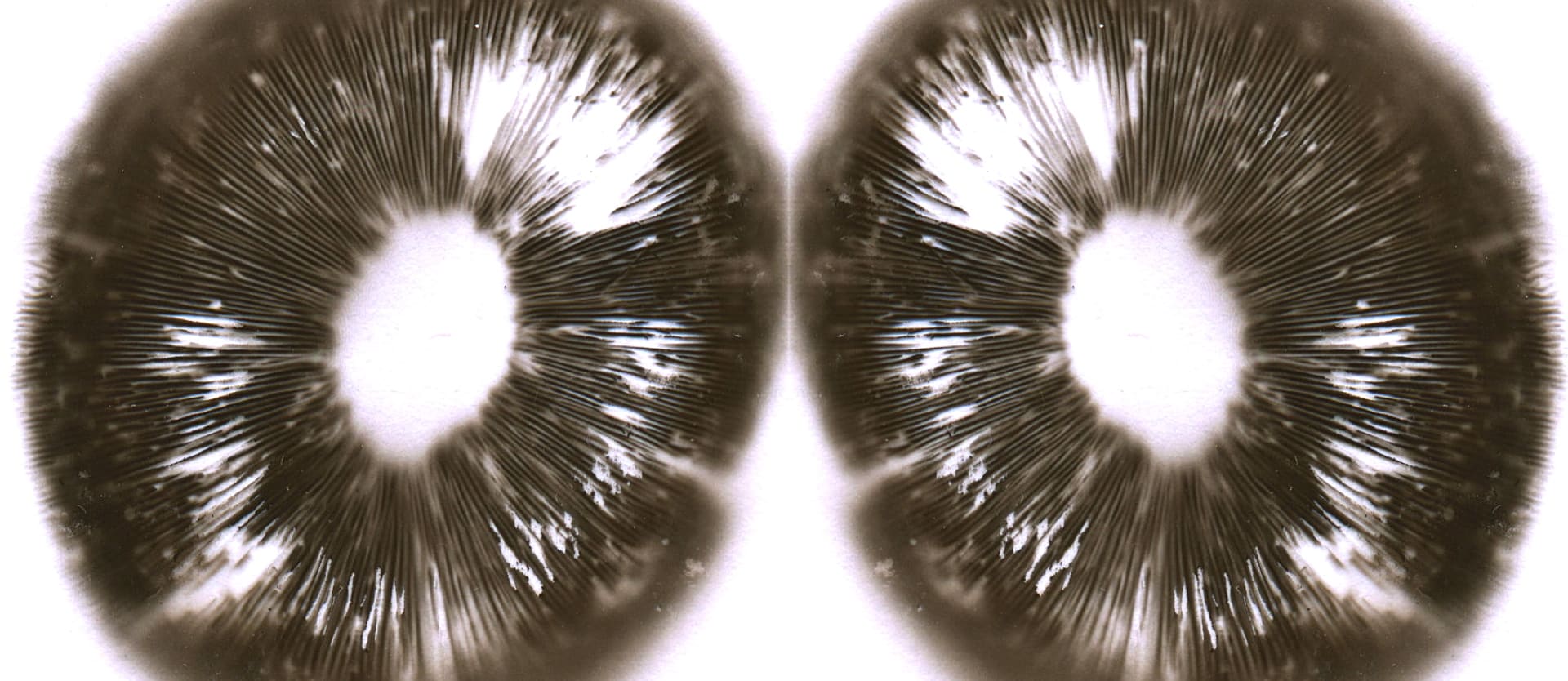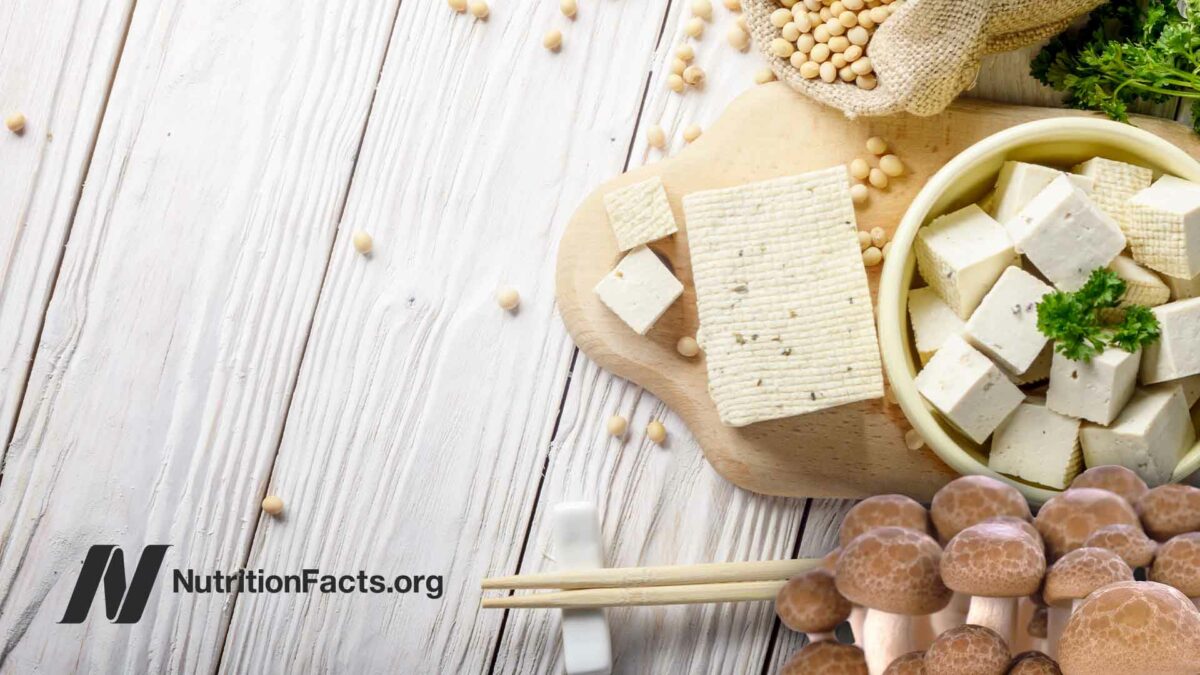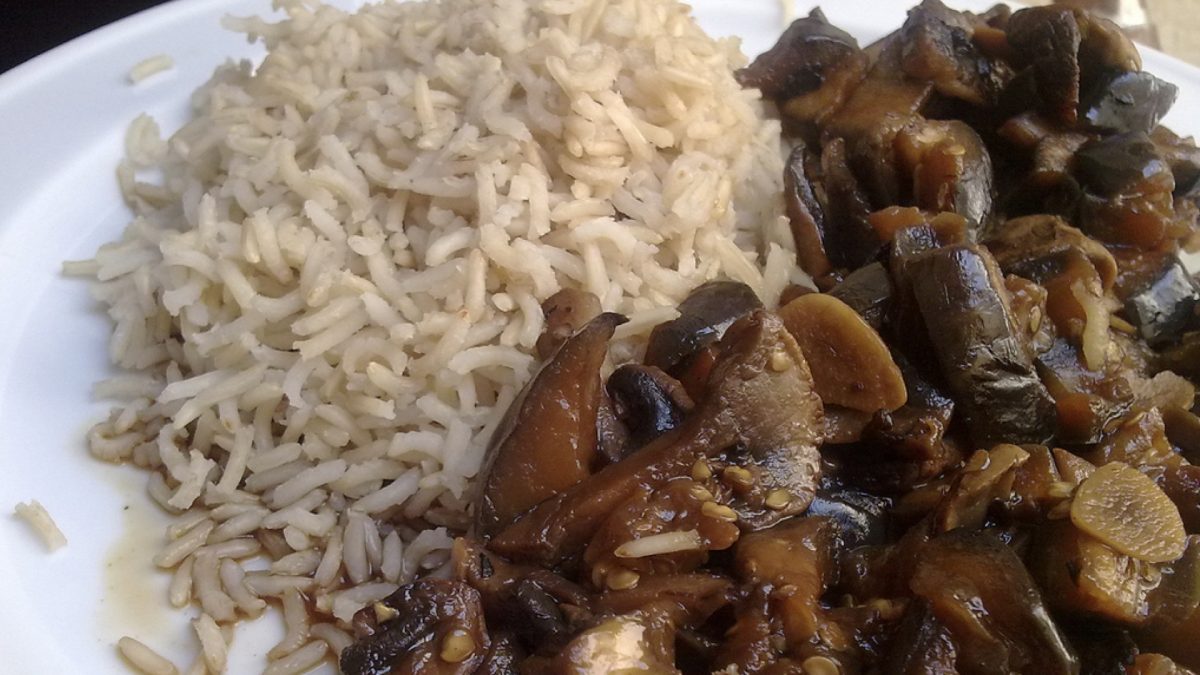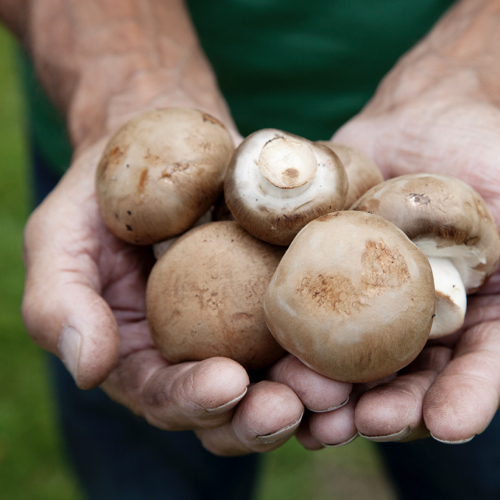
Mushrooms
Learn more about the latest evidence-based research on mushrooms below.
Only one way of eating has ever been proven to reverse heart disease in the majority of patients: a diet centered around whole plant foods. If that’s all a whole-food, plant-based diet could do—reverse our number-one killer—shouldn’t that be the default diet until proven otherwise? The fact it may also be effective in preventing, treating, and arresting other leading killers seems to make the case for plant-based eating simply overwhelming.
But, what about mushrooms? They aren’t even plants at all; they belong to an entirely different biological classification and may contain nutrients (like ergothioneine) not made anywhere in the plant kingdom.
Thousands of edible mushrooms grow naturally, with worldwide annual commercial production in the millions of tons. Check the nutrition label on a carton of mushrooms, however, and you won’t see much beyond some B vitamins and minerals. Is that all they have? No. What you don’t see listed is the array of unique myconutrients that may boost our immune function and trigger a dramatic rise in antibody production.
Mushrooms may also have an anti-inflammatory effect. In vitro studies have shown that a variety of mushrooms, including the plain white button variety, appear to blunt the inflammatory response, potentially offering a boost in immune and anticancer function without aggravating diseases of inflammation.
So, when I talk about a whole-food, plant-based diet, perhaps, technically, I should be referring to a whole-food, plant- and fungus-based diet!
My Daily Dozen recommendation is for at least one serving of cruciferous vegetables and at least two additional servings of other vegetables a day, cruciferous or otherwise, and mushrooms are included as a delicious, healthy option.
For substantiation of any statements of fact from the peer-reviewed medical literature, please see the associated videos below.
Image Credit: decisiveimages / Thinkstock. This image has been modified.
Popular Videos for Mushrooms


Why Do Asian Women Have Less Breast Cancer?
Mushrooms, green tea, and soy consumption may decrease breast cancer risk, but how many mushrooms,...
Where Does the Arsenic in Rice, Mushrooms, & Wine Come From?
What happens when our crops are grown in soil contaminated with arsenic-based pesticides and arsenic...All Videos for Mushrooms
-

The Benefits of Black and Green Teas for Brain Waves
Of all the plants in the world, why has the tea plant become the most popular beverage in the world?
-

Don’t Eat Raw Alfalfa Sprouts
Broccoli sprouts don’t have the food safety risks of alfalfa sprouts.
-

The Best Way to Cook Vegetables
Which method of cooking vegetables preserves the most antioxidants?
-

A Plant-Based Diet for Weight Loss: Boosting GLP-1 and Restoring Our Natural Satiety Circuit
Why does our natural GLP-1 satiety mechanism fail, and what can we do about it?
-

Does Lion’s Mane Mushroom Powder Have Benefits for Dementia?
Regular mushroom consumption is associated with a lower risk of cognitive decline and dementia, but data from interventional trials are mixed.
-

3 Healthy, Easy Recipes: Appetizer, Pasta, and Dessert
Celebrate the season with recipes from my cookbooks.
-

Banana vs. Mango Smoothies for Polyphenol Absorption
How can you mediate the phytonutrient-destroying enzyme in avocados, bananas, and mushrooms?
-

How Not To Age – Live Presentation
In this live lecture, Dr. Greger offers a sneak peek into his latest book, How Not to Age, a New York Times Best Seller.
-

Dietary Sources of the “Longevity Vitamin” Ergothioneine
It may be even more important to include mushrooms (or tempeh) in our diet as we age.
-

Blocking the Cancer Metastasis Enzyme MMP-9 with Beans and Chickpeas
Which legumes are best at inhibiting the matrix metalloproteinase enzymes that allow cancer to become invasive?
-

White Button Mushrooms for Prostate Cancer
What can reishi mushrooms, shiitake mushroom extracts, and whole powdered white mushrooms do for cancer patients?
-

Medicinal Mushrooms for Cancer Survival
Did the five randomized controlled trials of reishi mushrooms in cancer patients show benefits in terms of tumor response rate, survival time, or quality of life?
-

Is It Safe to Eat Raw Mushrooms?
Microwaving is probably the most efficient way to reduce agaritine levels in fresh mushrooms.
-

Evidence-Based Weight Loss – Live Presentation
In this live presentation, Dr. Greger offers a sneak peek into his book How Not to Diet.
-

Recipe: Soba Noodle Soup
A light broth soup, packed with a rainbow of vegetables and hearty buckwheat soba noodles. Toss in edamame or your favorite vegetables and spices to make this recipe your own. This recipe comes from Hailey, our Chinese Social Media Manager.
-

Recipe: Easy Veggie Tacos
This recipe for Veggie Tacos comes from staff member Ángela.
-

Kidney Stones and Spinach, Chard, and Beet Greens: Don’t Eat Too Much
Given their oxalate content, how much is too much spinach, chard, beet greens, chaga mushroom powder, almonds, cashews, star fruit, and instant tea?
-

Best Way to Cook Vegetables
Boiling, steaming, microwaving, air frying, and sous vide cooking are put to the test for nutrient retention.
-

Dr. Greger on Live with Kelly and Ryan
Watch my JanYOUary 2018 segment on Live with Kelly and Ryan.
-

How to Treat Jet Lag with Melatonin-Rich Food
There may be a way to get the benefits of over-the-counter melatonin supplements without the risk.
-

Dr. Greger’s Daily Dozen Checklist
In my book How Not to Die, I center my recommendations around a Daily Dozen checklist of everything I try to fit into my daily routine.
-

Culture Shock – Questioning the Efficacy and Safety of Probiotics
In certain medical conditions, probiotic supplements may actually make things worse.
-

Dr. Greger’s Daily Dozen Checklist
In my book How Not to Die, I center my recommendations around a Daily Dozen checklist of all the things I try to fit into my daily routine.
-

Where Does the Arsenic in Rice, Mushrooms, & Wine Come From?
What happens when our crops are grown in soil contaminated with arsenic-based pesticides and arsenic drug-laced chicken manure?
-

Where Does the Arsenic in Chicken Come From?
What was the National Chicken Council’s response to public health authorities calling for the industry to stop feeding arsenic-based drugs to poultry?
-

Best Foods for Polycystic Ovary Syndrome (PCOS)
Which foods and cooking methods should we choose and avoid, given the role advanced glycation end products (glycotoxins) may play in polycystic ovary syndrome (PCOS)?
-

How Not to Die: An Animated Summary
We have tremendous power over our health destiny and longevity.
-

Will You Live Longer if You Take Vitamin D Supplements?
What do 56 randomized clinical trials involving nearly 100,000 people between the ages of 18 and 107 show vitamin D can do to our lifespan?
-

Preventing Gout Attacks with Diet
If the uric acid crystals that trigger gout come from the breakdown of purines, should gout patients avoid even healthy, purine-rich foods, such as beans, mushrooms, and cauliflower?
-

Fish Consumption and Suicide
The mercury content in fish may help explain links found between fish intake and mental disorders, depression, and suicide.
-

Nutritional Yeast to Prevent the Common Cold
Beta glucan fiber in nutritional yeast may improve immune function, but there is a concern about lead contamination in some brands.
-

Gout Treatment with a Cherry on Top
How do sweet cherries compare to the drug allopurinol and a low-purine diet for the treatment of the painful inflammatory arthritis gout?
-

Alpha-Gal and the Lone Star Tick
Our immune response against a foreign molecule present in animal products may play a role in some allergic, autoimmune, and inflammatory disorders. This reaction is thought to underlie tick bite-triggered meat allergies.
-

Eating Outside Our Kingdom
A higher rate of cancer deaths among those that handle and process meat is attributed to infection with viruses, and chronic exposure to animal proteins.
-

More than an Apple a Day: Preventing the Most Common Diseases
Dr. Greger has scoured the world’s scholarly literature on clinical nutrition, and developed this brand-new live presentation on the latest in cutting-edge research on how a healthy diet can affect some of our most common medical conditions.
-

Breast Cancer Risk: Red Wine vs. White Wine
Modest lifestyle changes that include the avoidance of alcohol may cut the odds of breast cancer in half, but certain grapes appear to contain natural aromatase inhibitors that may undermine the ability of breast tumors to produce their own estrogen.
-

Boosting Immunity While Reducing Inflammation
Cooked white mushroom consumption stimulates antibody production, while potentially still playing an anti-inflammatory role.
-

Herbal Tea Update: Rooibos & Nettle
Rooibos (red) tea may reduce stress levels by suppressing adrenal gland function. Nettle tea is mineral-rich, but may have estrogenic side effects.
-

Is Vitamin D3 Better Than D2?
Vitamin D3—sourced from sunlight exposure, animal, and plant sources—may be preferable to vitamin D2 sourced from fungi.
-

Why Do Asian Women Have Less Breast Cancer?
Mushrooms, green tea, and soy consumption may decrease breast cancer risk, but how many mushrooms, how much green tea, and what’s the best soy strategy?
